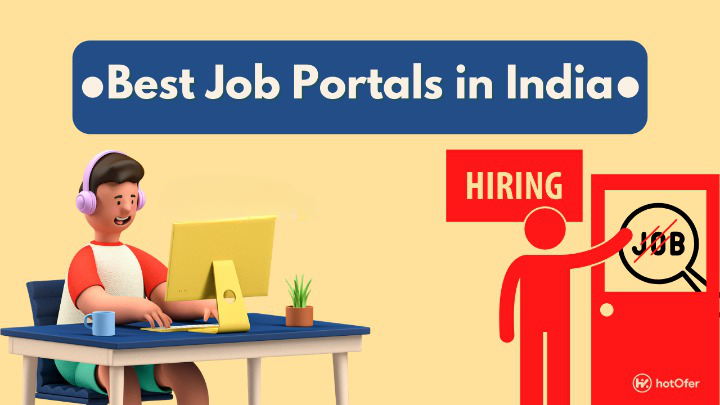If you’re hiring blue collar workers, you’ve got your work cut out for you. The labor market for these professions is tightening: jobs are abundant, but where’s all the talent to fill them?
In fact, 80 percent of construction firms are having a hard time filling these jobs. Moreover, they predict the trend will continue. This talent shortage isn’t only due to the 50-year-low in the US unemployment rate – hiring for blue collar professions involves another challenge. Older skilled workers are starting to retire, and younger people are encouraged to pursue 4-year degrees rather than learn a trade, which can reduce blue collar availability in the near future.
So, how do you succeed in blue collar recruitment with these challenges in mind? How do you find and evaluate candidates in order to fill those open roles quickly with the right people?
Here are seven tips on how to recruit blue collar employees in a tight market:
Expand your outreach
Mixing your candidate attraction strategies is a good answer if you’re wondering how to find blue collar workers (or rather, where to find blue collar workers). Here are some methods you can try:
1. Post to niche job boards
Niche job sites help you target the right audience and reduce irrelevant applications. So, if you’re not getting all the candidates you want by posting jobs in mainstream job boards, try out targeted job sites, too.
For example, if you’re looking for construction employees, advertise on the best construction job boards. For manufacturing roles (e.g. welder, machinist, assembler), you can use job sites like Manufacturing Jobs, Manufacturing Crossing or JobsInManufacturing. You can find other dedicated job boards for a variety of blue collar professions (for example, check out Nexxt’s network of local and national job sites).
Wondering how to attract blue collar workers? The first thing you need is a good job ad. Check out our vast, ever-growing library of job description templates.
2. Use referrals
Employee referrals are one of the most effective hiring methods: referred employees tend to stay longer at the company and be better culture fits. So, ask your workers if they know other competent people who can fill your open roles.
Start your referral program by determining what referrals rewards you’ll give for successful referrals, and how you’ll reach out to your workers. For example, your recruiting software may have a built-in referral function to make it easier for you to request referrals, and for your employees to find qualified people in their network and refer them.
3. Hire veterans
If only there was an entire group of highly trained and skilled candidates who are often unemployed or looking for a new career. Well, there are; military veterans are often trained in supply chain, construction, driving and other fields, and they could easily transfer these skills to careers in non-military pursuits.
So, consider including a veteran hiring program in your recruitment strategy. Here’s a guide to get you started on posting job ads for veterans, marketing your company as a veteran-friendly employer and more.
Highlight the way to a blue collar career
If most millennials and GenZers are hunting college degrees, it’s because they’ve been taught that there is more career potential in white collar professions. But, blue collar jobs also have opportunities for financial success and personal satisfaction, and that’s something you can promote. Here are two ways you can do that:
5. Promote the good aspects of blue collar jobs
Granted, some blue collar jobs are exhausting and dangerous, and they often lack the glamor associated with other fields, like medicine, law, or STEM-focused functions. But, blue collar jobs come with benefits you can showcase to potential workers.
For example, working in construction means that you’ll help build something useful that will last for many years – a physical legacy, so to speak. A career promotion platform in New Zealand, built by civil contractors, indicates this as one of the appeals of construction jobs: “[Construction workers] can build something they can point out to their children in 20 years’ time.”
Look for the aspects of blue collar jobs that can attract younger people, such as working outdoors, being active, and more – add job satisfaction, purpose, and vision to any other more tangible benefits. Create a unique promotion program or partner with other companies to enhance your efforts. You can also consider adding perks that might attract candidates, such as free lunches from lunch trucks or gym subscriptions.
Make the process easier
Complex or long hiring processes are an issue in every industry and role, since a good percentage of job seekers abandon applications or reject job offers for these reasons. In industries struggling with talent shortages, it’s even more vital to streamline the recruiting process for job seekers in ways that help you evaluate them quicker and better. Here are two suggestions for hiring blue collar workers:
6. Tailor evaluation methods
Though there are exceptions, most blue collar jobs don’t require a college or university degree. This means that traditional cognitive ability and personality tests – with complex exercises and long-winded explanations – may present difficulties for some candidates, especially if they belong in older generations. This means that you might lose some great candidates at the beginning of the hiring process.
One solution would be to try out innovative evaluation methods, such as video interviews, work samples (e.g. paying a job seeker to work with you for a day), or gamification. Gamification especially can enhance candidate experience by making the assessment process more interesting or fun for job seekers.
An example of how this could work is one of Bosch’s hiring processes for hiring blue collar workers in Hungary. Bosch uses game-based assessment provider Benchmark.games (a Workable partner) to send candidate assessments. Benchmark has tailored their online games and AI assessments to the blue collar positions for Bosch. David Szilagyi, Benchmark’s CEO and founder explains their approach:
Candidates applying for blue-collar positions usually submit resumes that are not sophisticated or elaborate enough, making the decision really difficult, especially when hiring in volume.
“So Bosch needed a solution to measure soft-skills and competencies of candidates and engage more of them at the top of the funnel,” continues David. “The objective is to identify the best potential hires [early] to reduce the total number of interviews, and therefore time to hire and cost per hire.”
So, Bosch has started using Benchmark’s assessments to evaluate a number of competencies such as monotony tolerance, accuracy, analytical thinking, learning ability, speed, and more. The tailored solution includes less complex game levels, simplified instructions and implementation of a warm-up game, so the candidates could get involved with better success.
7. Be mobile-friendly
According to a recent Glassdoor survey, blue collar job seekers are more likely to use their phones to look for jobs than other workers. This means that, if you haven’t optimized your careers page or application forms for mobile, then you could lose qualified applicants. The same survey indicates:
Here are some actions you can take:
Go through an application process yourself on mobile to see if there are issues with the process (aesthetic, functional, etc.)
Ensure your application forms aren’t overly complex or take too long to complete, since this will likely increase the abandonment rate on mobile (where the screen is smaller, making it more difficult to complete lengthy processes).
Too much to do? It’ll be much easier via the right recruiting software
If hiring blue collar workers sounds like a herculean task, you can make it much easier by choosing a good hiring software as your ally.
For example, via a recruitment platform like Workable, you can post jobs on multiple job boards with a single click, streamline referrals, integrate gamification tools and other evaluation methods, set up mobile-optimized careers pages and application forms quickly and easily… the list goes on. This way, you’ll be able to have an efficient hiring process that’ll free you up time and help you fill those open jobs – whether the market is tight or not.
Post Views: 1,653












